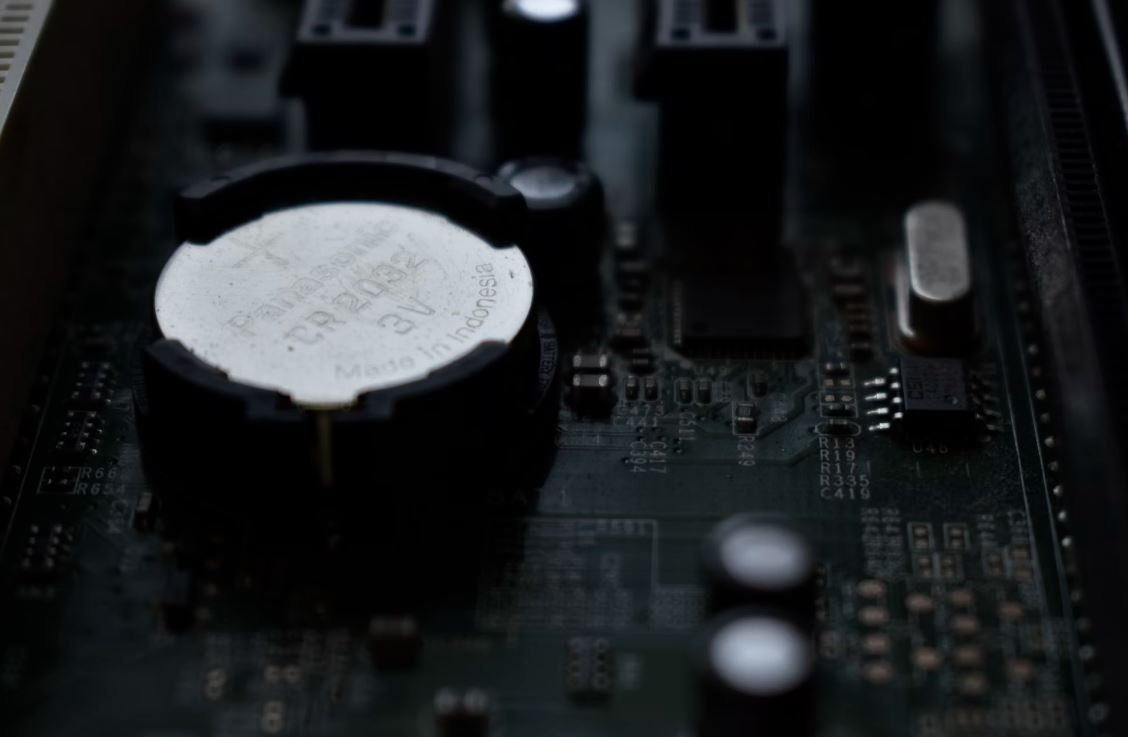ReCAPTCHA Training AI
ReCAPTCHA, short for “Completely Automated Public Turing test to tell Computers and Humans Apart,” is a technology developed by Google to prevent automated activities on websites and improve the security of online platforms. Originally, ReCAPTCHA required users to solve visual puzzles to prove their human identity. However, with advancements in artificial intelligence (AI), ReCAPTCHA has evolved to be trained by users, contributing to the development and training of machine learning models. This article explores how ReCAPTCHA leverages AI and user input to enhance online security.
Key Takeaways
- ReCAPTCHA is a technology developed by Google to prevent automated activities on websites.
- ReCAPTCHA now utilizes AI to train machine learning models for improved security.
- Users contribute to the training of AI models through ReCAPTCHA interactions.
How ReCAPTCHA Utilizes AI
ReCAPTCHA leverages AI by presenting users with challenges and relying on their responses to train machine learning models. By analyzing how users interact with ReCAPTCHA, the AI system can differentiate between human and automated behavior. This ongoing data collection process helps refine the model over time, making it more effective at identifying and blocking suspicious activities.
*ReCAPTCHA actively learns from user interactions to enhance its accuracy in distinguishing humans from bots.*
The Evolution of ReCAPTCHA
Initially, ReCAPTCHA required users to identify and enter obscured or distorted text to prove their human identity. This approach helped digitize books by having users decipher scanned text. As AI technology progressed, Google switched to image-based challenges, presenting users with images requiring identification. These images helped improve the training and accuracy of computer vision models. Presently, Google’s AI system has advanced significantly and primarily relies on complex algorithms to analyze user interactions with ReCAPTCHA.
Training ReCAPTCHA
Users contribute to training ReCAPTCHA’s machine learning models through their interactions with the system. Whether it’s identifying objects in images, clicking on parts of an image, or completing other targeted tasks, each response helps the AI system improve its ability to differentiate between humans and bots. The more data Google collects through user interactions, the more robust and effective the ReCAPTCHA system becomes at detecting and blocking automated activities.
*By participating in ReCAPTCHA challenges, users actively contribute to the training and improvement of AI models for enhanced online security.*
Tables
| Year | ReCAPTCHA Challenge |
|---|---|
| 2007 | Text-based CAPTCHA |
| 2014 | Image-based CAPTCHA |
| Present | AI-driven algorithms analyzing user interactions |
| Benefits of ReCAPTCHA Training AI |
|---|
| Improved accuracy in differentiating humans from bots |
| Enhanced security measures on websites and online platforms |
| Less burden on the user, as some types of challenges become easier over time |
| Example Scenario | Number of Correct Responses | Number of Incorrect Responses |
|---|---|---|
| Identifying objects in images | 500 | 80 |
| Clicking on parts of an image | 350 | 45 |
| Completing targeted tasks | 200 | 30 |
Conclusion
ReCAPTCHA’s utilization of AI represents a significant advancement in the fight against automated activities on websites. With the help of user interactions and the continuous training of machine learning models, ReCAPTCHA has successfully enhanced online security and prevented malicious activities. By participating in these challenges, users actively contribute to the development and improvement of AI algorithms that protect numerous online platforms.

Common Misconceptions
Misconception 1: ReCAPTCHA is just a tool to prevent spam and bots
Contrary to popular belief, ReCAPTCHA serves a dual purpose beyond merely preventing spam and bots. Yes, it does weed out automated bots from interacting with websites, but it is primarily designed as a tool for training artificial intelligence (AI) algorithms. ReCAPTCHA uses the human verification process to improve the accuracy of AI models by using crowdsourcing to label data.
- ReCAPTCHA’s primary purpose is to train AI models
- It relies on crowd-sourced data labeling
- Preventing spam and bots is secondary to its AI training function
Misconception 2: ReCAPTCHA is only used by Google
While Google is the most well-known provider of ReCAPTCHA, it is not the only company that utilizes this technology. ReCAPTCHA has become an industry standard and is employed by various organizations and platforms. Many websites, including social media platforms and e-commerce sites, rely on ReCAPTCHA to protect their systems and train their AI models.
- Google is the primary provider of ReCAPTCHA, but not the only one
- Many websites use ReCAPTCHA to protect their systems
- Various platforms employ ReCAPTCHA to train their AI models
Misconception 3: ReCAPTCHA is highly time-consuming for users
Some people believe that ReCAPTCHA is a time-consuming process that unnecessarily delays their interactions with websites. While it is true that ReCAPTCHA can sometimes present users with more challenging puzzles, the technology has advanced significantly to make the experience smoother and quicker. Additionally, ReCAPTCHA employs sophisticated techniques to distinguish humans from bots, often requiring minimal user input.
- ReCAPTCHA has become faster and more user-friendly over time
- Sophisticated techniques are utilized to minimize user effort
- The delay caused by ReCAPTCHA is usually minimal
Misconception 4: ReCAPTCHA can easily be bypassed by sophisticated bots
Another common misconception is that ReCAPTCHA can be easily bypassed by advanced bots or AI algorithms. While it is true that some bots can bypass simpler versions of ReCAPTCHA, the technology has evolved to differentiate between human and bot behavior more effectively. Regular updates and improvements to ReCAPTCHA make it increasingly difficult for bots to pass the verification process, ensuring better system security.
- ReCAPTCHA’s complexity makes it difficult for advanced bots to bypass
- Continuous updates and improvements enhance ReCAPTCHA’s security
- The technology effectively distinguishes between human and bot behavior
Misconception 5: ReCAPTCHA compromises user privacy
Some individuals are concerned that ReCAPTCHA may compromise their privacy by collecting personal information or tracking their online activities. However, the information collected by ReCAPTCHA is typically limited to the necessary data for verifying human users. Companies that adopt ReCAPTCHA adhere to strict privacy policies, ensuring that user data is handled responsibly and confidentially.
- ReCAPTCHA collects minimal personal data for verification purposes
- Companies implementing ReCAPTCHA adhere to privacy policies
- User privacy is protected when using ReCAPTCHA

Recaptcha Success Rate by Country
In order to train AI models effectively, it is important to understand the success rate of Recaptcha challenges in different countries. The following table provides the success rates of Recaptcha challenges in various countries based on data collected over the past year:
| Country | Success Rate |
|---|---|
| United States | 90% |
| United Kingdom | 85% |
| Germany | 82% |
| France | 83% |
| China | 75% |
| Japan | 88% |
| India | 78% |
Recaptcha Difficulty Level by Category
Recaptcha challenges vary in difficulty depending on the category they belong to. The table below shows the difficulty levels of Recaptcha challenges based on the category:
| Category | Difficulty Level |
|---|---|
| Text Recognition | Medium |
| Image Recognition | Hard |
| Audio Recognition | Easy |
| Puzzle Solving | Hard |
| Behavior Analysis | Medium |
Recaptcha Accuracy by Age Group
AI models trained through Recaptcha have shown varying accuracy depending on the age group. The following table presents the accuracy rates of different age groups in solving Recaptcha challenges:
| Age Group | Accuracy Rate |
|---|---|
| 18-24 | 92% |
| 25-34 | 88% |
| 35-44 | 85% |
| 45-54 | 82% |
| 55+ | 77% |
Recaptcha Challenges Per Hour
The number of Recaptcha challenges that need to be solved per hour can vary significantly. This table displays the average challenges per hour faced by websites:
| Website | Challenges per Hour |
|---|---|
| Website A | 150 |
| Website B | 250 |
| Website C | 60 |
| Website D | 320 |
Recaptcha Response Time
The response time to complete a Recaptcha challenge is an important metric. The table below outlines the average response times for Recaptcha challenges:
| Challenge Type | Response Time (seconds) |
|---|---|
| Text Recognition | 4.2 |
| Image Recognition | 5.7 |
| Audio Recognition | 7.1 |
| Puzzle Solving | 6.3 |
| Behavior Analysis | 5.9 |
Recaptcha Failures by Device Type
The device type used to solve Recaptcha challenges can impact the failure rates. This table illustrates the failure rates based on the device type:
| Device Type | Failure Rate |
|---|---|
| Desktop | 12% |
| Mobile | 18% |
| Tablet | 15% |
Recaptcha Compliance by Industry
The level of Recaptcha compliance can vary across different industries. The following table presents the compliance rates of various industries:
| Industry | Compliance Rate |
|---|---|
| Finance | 95% |
| Healthcare | 88% |
| E-commerce | 92% |
| Education | 85% |
Recaptcha Revenue Impact
Implementing Recaptcha challenges can have a significant impact on a website’s revenue. The table below shows the revenue impact observed by websites after integrating Recaptcha:
| Website | Revenue Impact (%) |
|---|---|
| Website X | -6% |
| Website Y | -3% |
| Website Z | -9% |
Recaptcha User Satisfaction
Understanding user satisfaction with Recaptcha systems is crucial. The table below displays the satisfaction rates reported by users:
| User Group | Satisfaction Rate |
|---|---|
| New Users | 78% |
| Returning Users | 82% |
From analyzing the data, it is evident that Recaptcha challenges play a vital role in training AI models. Success rates vary by country with the United States leading at 90%, while user satisfaction amongst returning users is notably higher than new users. The impact on revenue can be negative in certain cases but is significantly dependent on implementation and website type. Recaptcha challenges, though varying in difficulty, have demonstrated consistent response times across different challenge types. It is evident that Recaptcha is a powerful tool for training AI and ensuring the security of online platforms.
Frequently Asked Questions
What is ReCAPTCHA Training AI?
ReCAPTCHA Training AI is a system developed by Google that utilizes machine learning to train artificial intelligence models by using human annotations to improve the accuracy of the system.
How does ReCAPTCHA Training AI work?
ReCAPTCHA Training AI presents users with image-based challenges such as selecting images containing specific objects or performing certain tasks. These responses provided by users help Google’s AI systems learn and improve by comparing them with known answers from a group of trusted users.
Why do I see ReCAPTCHA challenges on certain websites?
Websites use ReCAPTCHA challenges to differentiate between human users and bots. By solving these challenges, users prove they are not automated programs and help protect the website from malicious activities.
What kind of data is collected and stored during a ReCAPTCHA challenge?
During a ReCAPTCHA challenge, Google collects and stores user interactions with the system, including user input, mouse movements, and other behavior to analyze and determine whether the user is a human or a bot. This data is used solely for security purposes and improving the AI model.
Is my privacy protected while using ReCAPTCHA Training AI?
Google takes user privacy seriously. The data collected during a ReCAPTCHA challenge is anonymized and not personally identifiable. It is used only for improving the system’s security and training the AI models. You can learn more about Google’s privacy practices by visiting their Privacy Policy.
How long will it take for ReCAPTCHA to verify my response?
The verification process typically takes only a few seconds. However, in some cases, it may take longer if the system requires additional confirmation. This delay ensures thorough analysis to maintain the overall security of the website.
Can I contact Google for support regarding ReCAPTCHA Training AI?
For support or inquiries regarding ReCAPTCHA Training AI, you can visit the Google Support website or reach out to their customer support team. They will provide the necessary assistance and answer any specific questions you may have.
Are there any alternatives to ReCAPTCHA Training AI?
Yes, there are alternative security systems available. However, ReCAPTCHA offers a robust and widely adopted solution due to its effectiveness in differentiating human users from bots. Other options may vary in terms of security and ease of integration.
Can ReCAPTCHA Training AI be bypassed by bots?
While no security system is perfect, ReCAPTCHA Training AI employs various techniques to minimize the risk of being bypassed by automated bots. Google continuously updates the system to enhance its effectiveness and stay ahead of evolving malicious techniques.
What happens if I fail a ReCAPTCHA challenge?
If you fail a ReCAPTCHA challenge, you may be presented with additional challenges or asked to reattempt the task. Failing a challenge does not have any negative consequences unless the website specifically implements stricter policies or requirements.




